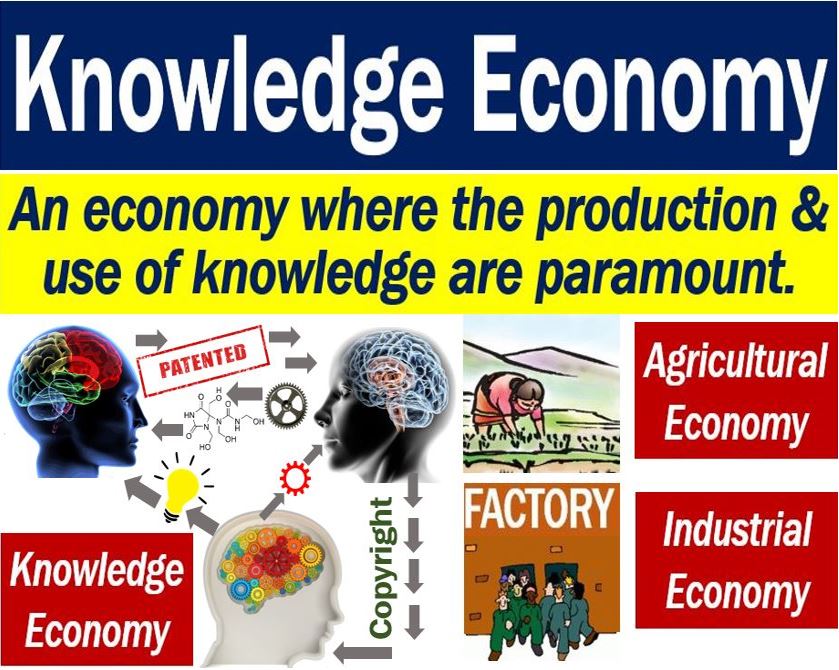A knowledge economy is an economy where the production and use of knowledge are king. It is an economy that bases itself on creating, evaluating, and trading knowledge. Labor costs matter much less in a knowledge economy compared to industrial and agricultural economies. In fact, such concepts as economies of scale and scarcity of resources do not apply in an economy where knowledge rules.
‘Economies of scale‘ refers to the overall unit costs of production, which decline when production increases. In an industrial or farming economy, resources are limited. Hence, the term, ‘scarcity of resources.’ Knowledge, however, is limitless.
In an economy where knowledge is paramount, resources such as trade secrets and expertise matter as much as other economic resources. Knowledge management, i.e., identifying and then knowing what to do with knowledge, is a crucial business skill today.
In a knowledge economy, know-how can give companies an important competitive advantage. Know-how is our brain’s ability to do things, i.e., our ability to accomplish things successfully.

Knowledge economy – a recent term
The term emerged in the 1960s to describe a move from traditional economies that relied on agriculture or industry. The shift was toward an economy where the production and use of knowledge mattered.
Peter Drucker (1909-2005) popularized the term in his 1969 book The Age of Discontinuity. Drucker was an Austrian-American management consultant, educator, and author.
Information and communication technologies (ICTs) are at the forefront of today’s knowledge economy.
Fast access to information is something that every commercial enterprise today takes for granted. Put simply; the Internet and state-of-the-art telecoms rule.
Any government today that looks to push its country toward a knowledge economy focuses on technology development.
The winners are the nations that have their own Silicon Valley of innovative small companies and online start-ups.
Knowledge economy – concepts
A principal concept of the knowledge economy is that we treat education and knowledge as one of the following:
– A business product, because we can export innovative intellectual products for a high-value return.
– A productive asset.
We commonly refer to knowledge and education as ‘human capital.’
Manual and knowledge workers
Drucker described the difference between manual and knowledge workers.
– Manual workers produce goods and services with their hands.
– Knowledge workers, however, work with their heads and produce information, knowledge, and ideas.
The knowledge economy is all about knowledge creation and knowing how to manage and exploit the new information.
